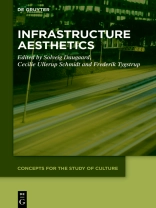An upsurge in artworks negotiating the conditions of their own production, distribution, and reception has called attention to the infrastructural relations that shape the art world but have long been understudied. In response, this book introduces the concept of infrastructure aesthetics into the study of culture.
The concept is drawn from infrastructure studies, media theory, and aesthetic theory. This volume develops it further, addressing:
- the analytical challenge of working with works that blur the boundaries between art and infrastructure, both historically and in the present,
- the aesthetic problem of assessing artistic forms that operate on an infrastructural level, and
- the politics of artistic agency on a social level, beyond the work’s content or message.
As the relation between artworks and their institutional and social settings becomes infrastructural in nature, we need to move beyond the reductive division of the study of artworks into production, articulation, and reception. This book provides its readers with an innovative conceptual toolbox designed for precisely this task, as well as a forceful set of exemplary case studies applying the concepts in theory and practice.
Circa l’autore
Solveig Daugaard, Department of Arts and Cultural Studies, University of Copenhagen, Denmark; Cecilie Ullerup Schmidt, Department of Arts and Cultural Studies, University of Copenhagen, Denmark; Frederik Tygstrup, Department of Arts and Cultural Studies, University of Copenhagen, Denmark.












